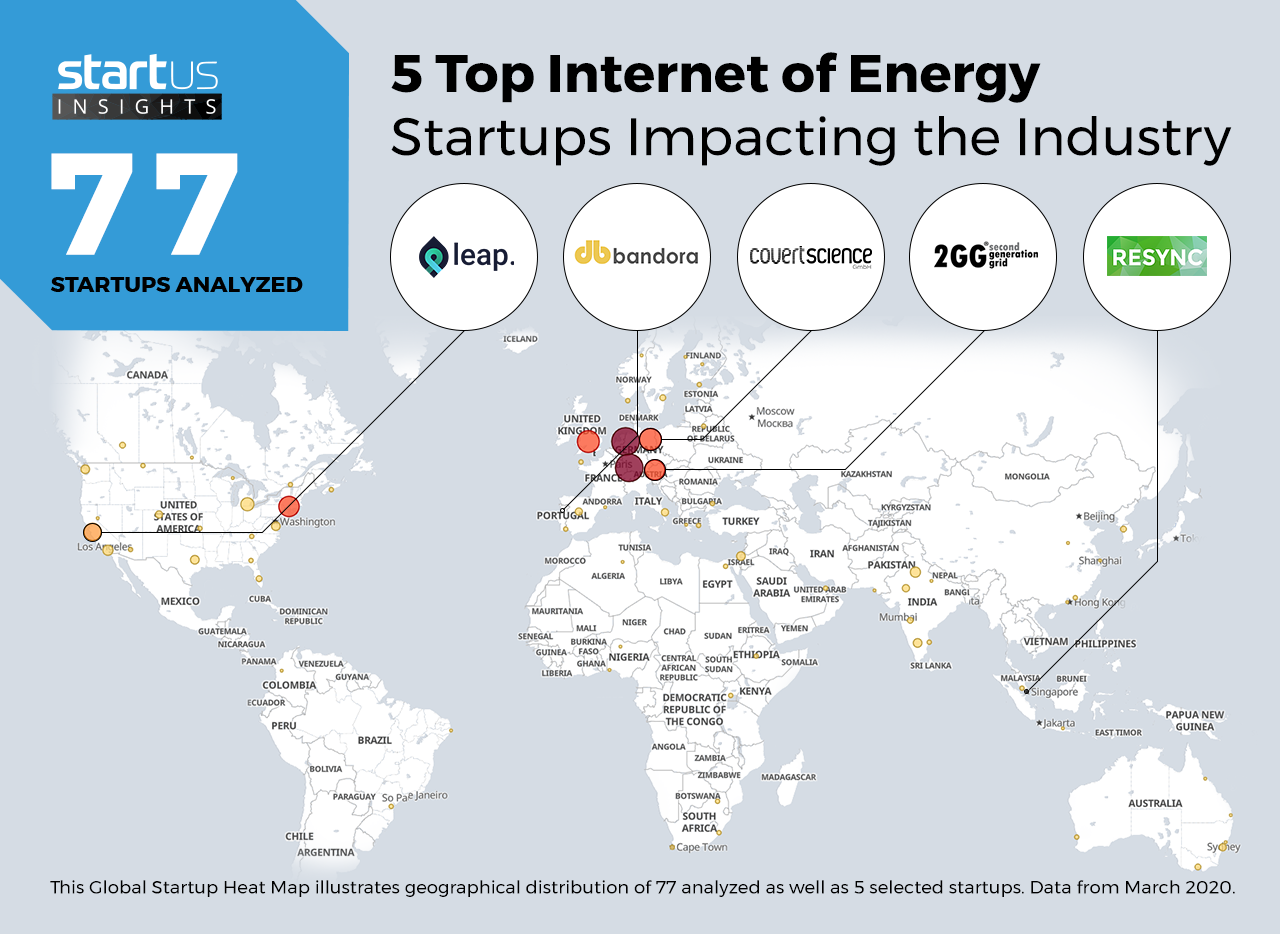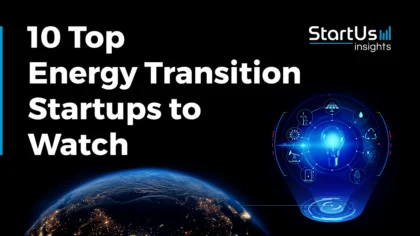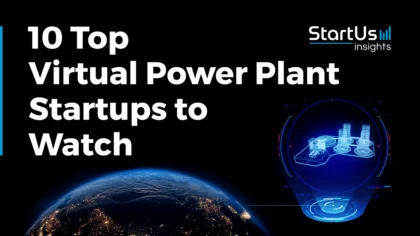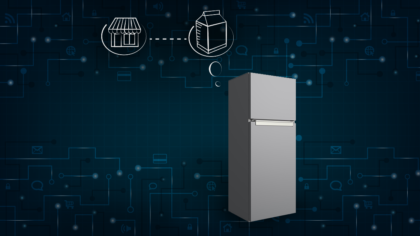Accelerate Productivity in 2025
Reignite Growth Despite the Global Slowdown
Our Innovation Analysts recently looked into emerging technologies and up-and-coming startups working on solutions for the energy sector. As there is a large number of startups working on a wide variety of solutions, we want to share our insights with you. This time, we are taking a look at 5 promising Internet of Energy startups.
Heat Map: 5 Top Internet of Energy Startups
For our 5 top picks, we used a data-driven startup scouting approach to identify the most relevant solutions globally. The Global Startup Heat Map below highlights 5 interesting examples out of 77 relevant solutions. Depending on your specific needs, your top picks might look entirely different.
2GG – Smart Meters
The Internet of Energy (IoE) enables distributed machine-to-machine energy management systems. Such systems transform energy transmission and optimize energy equipment pools to lower costs. Smart meters and monitoring applications, such as context-aware sensor technology, track energy parameters in real-time. These are featured prominently in network communication for smart energy.
The Slovenia-based startup 2GG develops a Smart-Metering-as-a-Service (SMaaS) solution. The solution provides in-depth data on energy consumption to energy and water distribution companies, utility providers, and industrial or commercial users. A secure communication hub (concentrator) transmits the metering data to a cloud server that stores and analyzes it. Additionally, the startup’s system features analytics software to identify usage patterns, prevent leakage, forecast demand, optimize supply, and manage production efficiency.
Leap – Distributed Energy Resources (DERs)
While DERs are as energy-efficient as large power plants, their proximity to consumers lowers the network losses involved in the distribution of electricity. They also comply with higher standards in terms of accessibility and quality of energy, and the reliability of energy supply. Distributed energy reduces the need for connected capacity and enhances the efficiency of the energy system. The decentralized generation contributes to local energy balance and involves end-user assets in the energy management processes.
Leap, a startup based in the US, creates a solution to allow connected devices to help balance the grid and access wholesale markets through a single application program interface (API). It enables users to transact in global DER markets and to receive financial incentives to reduce energy use during peak hours. Their platform combines the energy market with other participants in a virtual power plant. Its modular design allows for easy expansion, both in terms of geographic coverage and the addition of grid services such as generation and ancillary services.
Bandora Systems – Demand-Side Management
The traditional, centralized architecture for constructing power systems is no longer efficient in the face of new challenges, such as a shift in the nature of consumer demand. These include a growth in the diversity and dynamics of specific energy requirements and a transition to digital demand. The variety of electricity requirements that meet special parameters such as direct current, low voltage, or high quality require new systems to measure and control energy consumption.
The Portuguese startup Bandora Systems offers a real-time demand-side management solution that complements the existing building automation infrastructure. Their non-intrusive cloud platform gathers information from all systems inside the commercial buildings to ensure peak efficiency and maximize the comfort of its occupants. It integrates occupant feedback with a mobile app as part of the solution to determine building performance. The Artificial Intelligence-based system reduces energy consumption, simplifies building management, reduces the number of required full-time equivalents (FTEs), and undertakes predictive maintenance.
Covert Science – Digital Power Conversion
Digital power conversion and control impact both low and high power applications in numerous ways. It increases power density, enables faster control loops, allows for better system-level integration and design flexibility, improves reliability, monitoring, and safety, and helps reduce time-to-market. Overall, digital power conversion enhances system efficiency and predicts failures of the energy system to minimize power outages.
Covert Science is a German startup manufacturing embedded firmware for digital power conversion and lighting control. They develop remote device management (RDM), digital addressable lighting interface (DALI), streaming architecture of control networks (sACN), Art-Net, and other lighting control protocols and integrate them with microprocessor-based digital power control solutions. The startup also offers solutions for power engineering, optical engineering, embedded software development, and materials engineering.
RESYNC – Energy Management
The distributed energy systems interact and connect across centralized and decentralized electrical networks. They support advanced grid services such as net metering, load aggregation, and real-time energy monitoring. Cloud solutions for energy management handle massive amounts of data that smart meters and other grid components generate.
RESYNC is a Singaporean startup that combines machine learning and data analytics to provide intelligent energy cloud solutions for smart grids and buildings. They analyze historical and real-time data to predict energy generation and consumption patterns. The startup’s solution optimizes the use of renewables in the system and reduces the overall electricity bills.
What About The Other 72 Solutions?
While we believe data is key to creating insights it can be easy to be overwhelmed by it. Our ambition is to create a comprehensive overview and provide actionable innovation intelligence for your Proof of Concept (PoC), partnership, or investment targets. The 5 Internet of Energy startups showcased above are promising examples out of 77 we analyzed for this article. To identify the most relevant solutions based on your specific criteria and collaboration strategy, get in touch.








